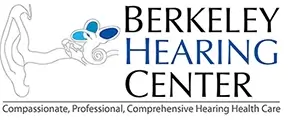
Cognitive Screening Can Help You Strengthen Your Memory and Mind
Hearing loss can be scary – cognitive decline and dementia can be scarier as some of the most devastating consequences of untreated hearing loss.
Studies have shown that even individuals with a mild hearing loss are over doubly at risk for dementia later in life. Your hearing is a vital part of keeping your entire body healthy; when your hearing is struggling, your entire body struggles, too.
Hearing loss leads to a disconnect between our ears and our brain, and with that disconnect comes extra strain on our brains to fill in the gaps. Ever feel like you heard someone tell you something important, but you forgot what it was? Straining to listen in conversations that you ultimately give up on because you can’t hear anything?
Cognitive decline can happen to any of us at any time. That’s why we include cognitive screenings during our hearing assessments to make sure that your memory stays sharp as you treat your hearing loss challenges.
With untreated hearing loss, you may find yourself concentrating harder: reading lips, understanding body language, and using the contextual information you do hear to fill in the gaps – leading to mental and emotional fatigue.
Hearing loss affects your ability to hear high-frequency sounds and pitches first, which is the most crucial range for speech understanding. When speech is unintelligible, background noise becomes overwhelming, and busy social events with lots of noise become places to avoid for those who can’t hear the people in front of them. Social isolation from hearing loss is more common than you’d think; it also links to elevated stress hormones and a heightened risk of dementia.
To detect early cognitive decline before it starts to affect your day-to-day life, audiology and hearing healthcare play crucial roles. The use of hearing aids has been proven to reduce your risk of dementia, improve your cognitive abilities, and even help you live longer.
A diverse group of passionate professionals, each bringing unique skills and experiences to drive innovation and excellence in every project we undertake.
Common Risk Factors
Some risks that hearing loss and cognitive decline have in common include blood vessel narrowing, social isolation, anxiety, depression, and for some, a struggle to stay balanced, according to some studies.
Mental Overload
Untreated hearing loss means that other areas of your brain pitch in to compensate for the lack of auditory output. The brain redirects resources to help with speech understanding instead of focusing those resources on what you need to think clearly and remember information.
Structural Changes to the Brain
Areas of the brain that we use for sound processing receive reduced auditory signals with hearing loss challenges, so they begin to shrink or atrophy with limited activity.
Social Isolation
Skipping social events or family gatherings is increasingly common for those with an untreated hearing loss. The stress of not hearing your loved ones and struggling to keep up with busy conversations is exhausting, making many individuals avoid going out to their regular spaces altogether.
Hearing loss happens slowly, over time passing; quite often, we don’t realize its impact on our health until someone else points it out to us.
If you feel that you’re struggling to remember information spoken to you, avoiding large events or social gatherings, or that your hearing isn’t where it used to be, our cognitive assessments included in our hearing tests provide you with the opportunity to better understand what your ears and body need to succeed.
Cognivue, an FDA-approved computerized testing technology, is the latest and greatest in cognitive screening that we use in-house to assess your brain health and hearing health. After all, we don’t hear with our ears – we hear with our brains.
Cognivue screening provides a personalized, consistent, and reliable assessment of your overall brain health, allowing you to monitor and address changes to your brain chemistry as they develop.
Features of Cognivue screening include:
10-Minute-long assessments
Non-invasive
Interactive and intuitive
Self-administered
Immediate results that are easy to understand
Secure and confidential data
Schedule Your Cognitive Screening Today!
Our team of audiologists utilizes Cognivue screening to ensure that you fully understand how integral your hearing is to your holistic health.
Contact us using the adjacent form to get in touch with one of our doctors of audiology.








